
Obtaining a French visa is not always easy, and you may receive a negative response from the embassy. Many applicants assume that after being rejected, they no longer have a chance to enter the country, but this is not the end of the road!
You can still apply to appeal the rejection of your French visa and increase your chances of approval by carefully reviewing the reasons for the refusal.
Overcoming a Schengen visa rejection requires knowledge of the embassy's rules and regulations. In many cases, minor mistakes or missing documents can be the main reasons for the rejection. Fortunately, it is possible to file an appeal and provide additional supporting documents.
If your application has been rejected, don’t worry! In the following, we will review the steps to take after a French visa rejection so that you know how to resolve this issue and reapply for a visa.
French Student Visa Rejection
A French student visa application can also be rejected for various reasons. Factors such as submitting forged documents, having a long gap between academic degrees (educational gap), or the embassy's lack of confidence in your return to your home country after completing your studies are among the common reasons for rejection of this type of visa.
If your student visa has been rejected, you can, like other visa types, submit an official appeal letter in French to request a re-evaluation. This letter must be sent to the French Embassy in Tehran along with updated and supplementary documents so that your case can be reviewed again.
Is Appealing a French Visa Rejection Mandatory?
Many applicants whose visa requests have been rejected ask whether filing an appeal is necessary. Appealing a visa rejection is not mandatory, and if you wish, you can reapply for a Schengen visa after some time without submitting an appeal.
However, appealing a visa rejection can speed up the process of obtaining your visa, as it gives you the opportunity to correct possible mistakes and increase your chances of approval.
The final decision in this regard is entirely up to you, and based on your case, you can choose the best option between appealing or submitting a new application.
Reasons for French Visa Rejection
A French visa rejection can happen for a variety of reasons, and depending on the type of visa requested, the embassy may provide different justifications for the refusal.
In some cases, the embassy officer may reject your visa application without a clear explanation, and the rejection letter may include reasons that do not necessarily match the reality of your case.
For example, the reason for your visa rejection may be listed as lack of proper travel history, while the real issue could be the failure to provide a valid hotel reservation or proof of accommodation.
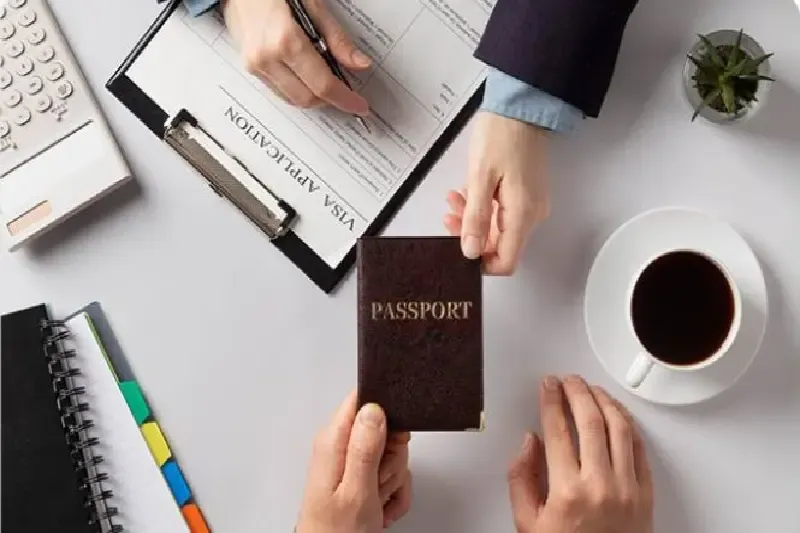
Legal Grounds for French Visa Rejection
According to Article 32 of the Schengen Border Code, there are six legal grounds for rejecting a French visa, and every visa application is rejected based on one of these clauses. To ensure effective actions after a Schengen visa rejection, it is essential to be aware of these six points so they are not repeated:
Submitting Fake or Invalid Documents
If the applicant uses fake documents to obtain a visa, not only will the application be rejected, but legal proceedings may also be initiated against them in the French judicial system. This includes forged passports, identity documents, property ownership papers, proof of financial means, or any other documents.Unclear Purpose of Travel
One of the main reasons for visa refusal is the embassy officer not being convinced of the applicant’s purpose of travel. France is very strict in issuing visas, and individuals without an official invitation letter from relatives or friends generally have a lower chance of obtaining a tourist visa. To avoid this issue, providing a detailed travel itinerary, a Schengen visa cover letter, and a strong travel history can increase your chances of getting the visa.Failure to Prove Intent to Return to the Country of Origin
A key part of the visa review process is providing documents that prove the applicant intends to return home after their trip. Missing documents such as a return ticket, valid hotel voucher, employment contract, or proof of ties to the country of origin can result in rejection. Additionally, submitting an invitation letter lacking official elements like company letterhead, signature, and stamp may cast doubt on its validity.Overstaying the Allowed Period in the Schengen Area
According to Schengen regulations, visa holders may not stay in the Schengen area for more than 90 days within a six-month period. If you have previously exceeded this duration, you must wait six months from your last visa before submitting a new application.Security Issues and SIS Registration
If your name is listed as an undesirable individual in the Schengen Information System (SIS), your visa will be denied. This may be due to a criminal record, illegal stay in Schengen countries, immigration-related issues, or associations with organized crime.Lack of Valid Travel Insurance
To obtain a French visa, it is mandatory to have valid travel insurance with a minimum coverage of €30,000. If the insurance provided is from an unreliable company, does not cover all travel days, or fails to meet the required medical expense coverage, your visa will be rejected on this basis.
What to Do If Your Schengen Visa Is Rejected
A Schengen visa rejection does not mean that you no longer have a chance to enter the country. Appealing a French visa rejection requires a thorough review of the refusal reasons and addressing the issues in your application.
You can reapply for a visa by completing your documents, providing convincing explanations, and, if necessary, submitting an appeal request.
Overcoming a Schengen visa rejection requires a solid understanding of immigration laws. In some cases, submitting an official appeal to the embassy may resolve the issue, but if the problem is more serious—such as a weak travel history or incomplete financial documents—it’s better to correct these issues before reapplying.
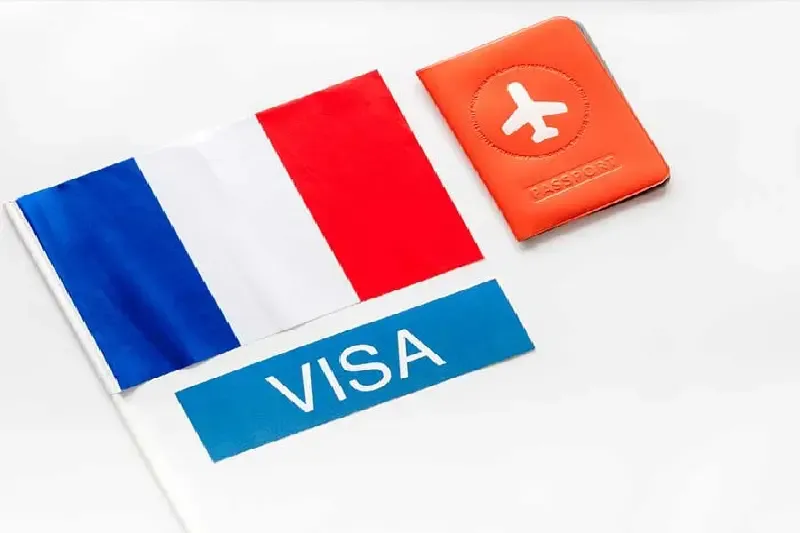
How to Increase Your Chances of Getting a Schengen Visa After Rejection
Appealing a visa rejection can be a long and challenging process, but by following certain guidelines, you can increase your chances of approval. Below are some methods to improve your situation:
Consulting Visa Experts
If you want to speed up and streamline the process of appealing your Schengen visa rejection, using the services of visa experts can be helpful. These professionals thoroughly review your case and offer solutions that can significantly boost your chances of success.Gathering Information from Official Sources
To obtain accurate and up-to-date information about the appeal process, it’s best to contact the embassy or consulate directly or visit their official website. This helps you stay informed about any potential changes in the visa application process.Submitting Complete and Documented Evidence
To address the deficiencies in your application, you must provide new and valid documents that clearly demonstrate the resolution of previous issues. Presenting credible and convincing evidence can increase the likelihood of your application being approved.
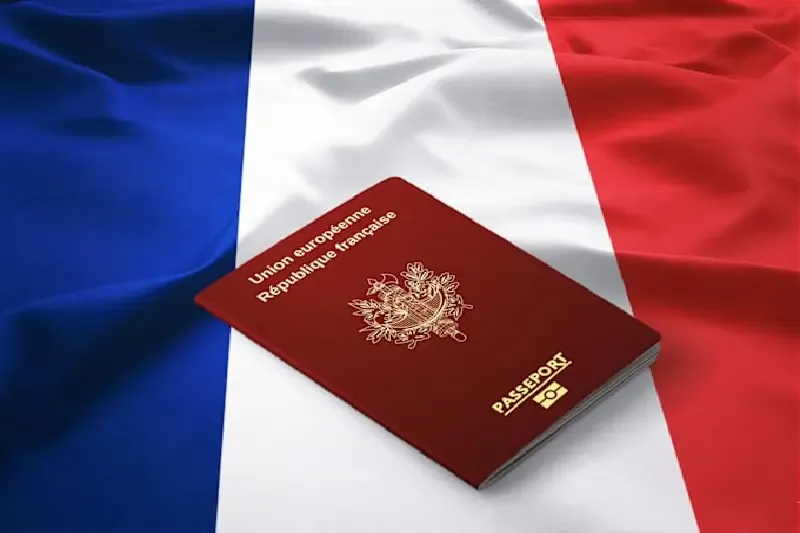
Timeframe for Appealing a French Visa Rejection
If your French visa application has been rejected, there is no need to worry! You still have the opportunity to appeal the Schengen visa rejection.
From the moment you receive the rejection letter, you have one month to carefully review the reasons for refusal, correct the existing issues, and submit your appeal to the embassy.
This stage includes completing your documents, providing convincing explanations, and in some cases, submitting new documents that can influence the embassy’s decision.
However, if you wish to file a formal complaint against the embassy’s decision, the timeframe for appealing a French visa rejection will differ.
You have up to one year from the date of receiving the rejection letter to pursue your case through legal channels with the help of an official lawyer from the French judiciary. This method is generally used when the applicant believes their visa was unfairly denied and requires further review.
In general, the duration for appealing a Schengen visa rejection depends on the method you choose: if you plan to appeal through the embassy, you must submit your request within one month, but if you intend to proceed with a legal complaint, you have up to one year to do so.
Methods for Appealing a French Visa Rejection
If your visa application has been rejected, you can still take legal steps to appeal the French visa refusal.
There are two main methods for doing this: filing an appeal and submitting an official legal complaint. Choosing the appropriate method depends on the specifics of your case, and each option has its own advantages and disadvantages:
Appealing the French Visa Rejection
Filing an appeal is the first and simplest way to address the issue. In this method, you must write an official appeal letter in French, explaining why you believe your visa application was unfairly rejected. This letter should be submitted to the embassy either by post or in person, along with supplementary documents.
After the appeal is submitted, your case will be reviewed by a different officer to ensure there was no mistake or unfairness in the initial decision. If your documents and explanations are convincing, the embassy’s decision may be overturned and your visa approved. This method is most suitable for applicants who had minor documentation issues or whose rejection reasons can be corrected.
Filing an Official Complaint in Case of Visa Rejection
If your Schengen visa is rejected and your appeal is unsuccessful, you can take legal action through the French courts. This approach is more complex and costly, as it requires hiring an official lawyer in France to pursue your case in court.
This option is generally suitable for those who have invested significantly in obtaining a long-term visa or residence in France and do not want to lose the opportunity.
Moreover, if the visa rejection has caused financial loss or serious problems for the applicant, legal action may be a reasonable solution. However, it is important to note that this process is time-consuming and may not guarantee visa approval.
By taking these steps after a Schengen visa rejection, you can reapply. Some issues can be corrected, and with proper documentation, you may submit a new application.
In other cases, an appeal or legal complaint might be the right path. If you plan to apply again, it’s best to resolve the previous issues and submit a stronger application to improve your chances of success.
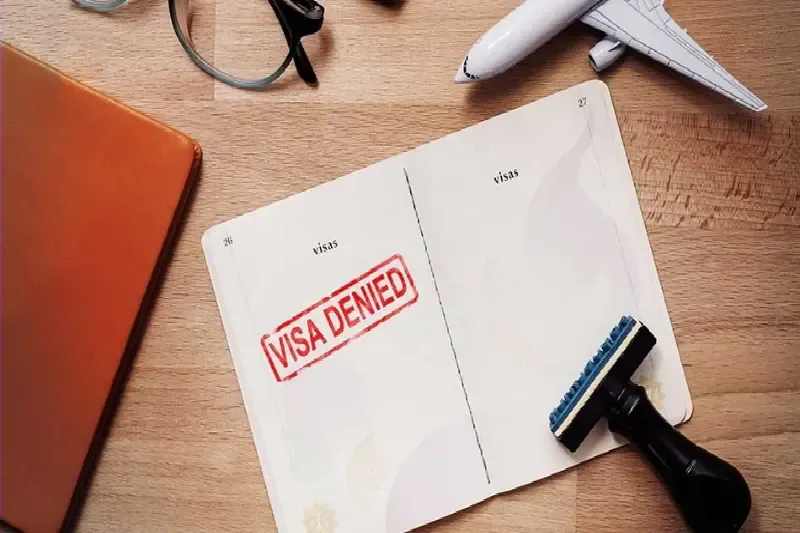
How to Write an Appeal Letter for a French Visa Rejection
If your visa application has been rejected, you still haven’t lost your chance of getting it. By sending an appeal letter against the visa refusal, you can review the reasons for rejection and submit additional documents.
However, writing this letter is not that simple, and you need to pay attention to some important points to increase your chances of overturning the French visa rejection.
• Collecting Documents and Reviewing the Reasons for Visa Rejection
The first step after a French visa rejection is to carefully review the refusal letter and analyze the reasons for the rejection. After receiving the letter, gather all related documents. If the issue was incomplete financial documents, lack of valid travel insurance, or missing accommodation reservations, you should complete these and submit them along with the appeal letter. This will help you present a stronger case for re-evaluation.
• Tips for Writing a Visa Refusal Appeal Letter
When writing the letter, it is essential to maintain a formal and respectful tone. Avoid using harsh, arrogant, or boastful language, as it may negatively affect the embassy officer's decision. It is better to state in your letter that the visa was refused due to an error or missing documents and that you have now resolved the issue.
Include the Date and Embassy Address: At the beginning of the letter, mention the current date and the details of the French embassy.
Provide Your Personal Information: Include your full name, passport number, email address, and contact number.
Mention the Rejection Date and Reason for Refusal: Clearly explain why your application was rejected.
Give Convincing Explanations: State that the problem has been resolved and that you are submitting new documents to prove it.
Be Brief and to the Point: The letter should not exceed two pages and must include only necessary and relevant information.
• Attaching Supporting Documents
Appealing a Schengen visa rejection without submitting additional documents is nearly impossible. After writing the letter, be sure to include all the necessary documents. Some of the key documents include:
A new hotel reservation or valid accommodation booking
Travel insurance with a minimum coverage of €30,000
Round-trip flight tickets with specific dates
A Schengen visa cover letter with more detailed travel explanations
In the end, submitting a precise and complete appeal letter along with sufficient documentation can increase your chances of obtaining a French visa.
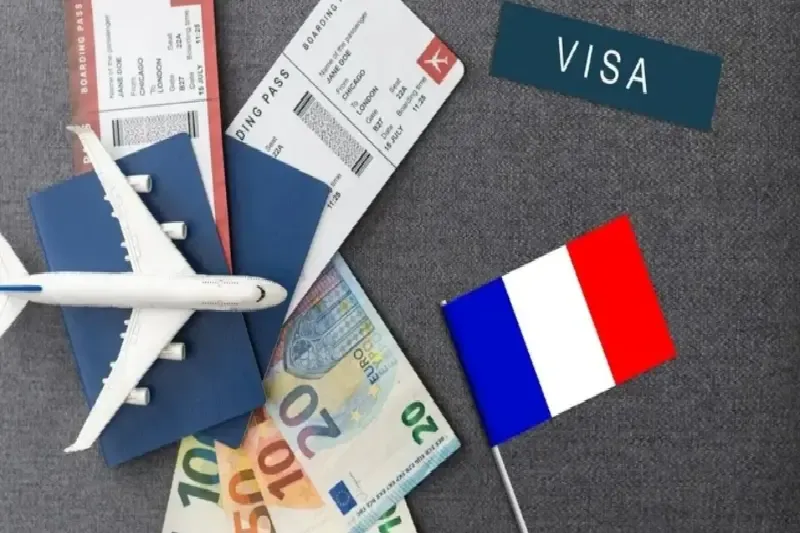
How Long Does It Take to Receive a Response to a French Visa Appeal Letter?
After submitting an appeal letter for a French visa rejection, the processing time for the appeal usually takes up to 3 months. During this period, the embassy will review your request and provide an official response.
If you do not receive a response after this period, it means that your appeal has not been accepted, and you will need to submit a new visa application.
Cost of Appealing a French Visa Rejection
Appealing a French visa rejection is completely free of charge. The French embassy does not charge any fees for re-evaluating your application. You can submit your appeal letter along with supporting documents to the embassy without paying any fees.
However, if you intend to take legal action and file an official complaint against the embassy’s decision through judicial authorities, this process involves significant costs. Expenses such as hiring a lawyer in France, administrative fees, and court costs are among the expenditures to consider.
Therefore, legal complaints are more suitable for individuals who applied for long-term visas and are willing to invest financially in appealing a French visa rejection.
Final Words: A Way to Overcome French Visa Rejection
Visa rejection can be disappointing, but it doesn’t mean you’ve lost your chance to travel to France or other Schengen countries. Overcoming a French visa refusal is entirely possible, provided you review the reasons for the rejection and take action to resolve them.
After receiving the rejection letter, the steps you take afterward are very important. You can try again by submitting additional documents, writing a convincing appeal letter, or even filing a new application.
Keep in mind that the processing time for a Schengen visa appeal depends on the method you choose. An appeal is usually reviewed within three months, whereas if you decide to reapply, you need to complete the missing documents and submit your new application at the appropriate time.
Ultimately, if the reason for the rejection is something that can be resolved, you can turn your Schengen visa refusal into a new opportunity by providing stronger documents and trying again.
Be Sure to Check Out:
